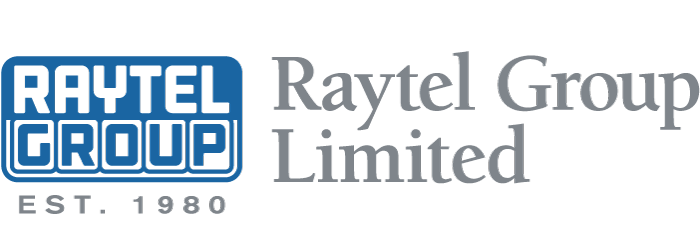Navigating the Business Jungle
Tips for would-be Entrepreneurs

Please note that the following comments are not intended to be authoritative and no responsibility is taken for any use or misuse of the points raised, it is simply a distillation of fifty-nine years of experience, survival and growth in two business sectors, industrial measurement and control and security equipment. The Business World is a jungle and some of those experiences might be useful to those who intend to become business owners in other sectors and who need to be fully aware of as many pitfalls as possible. It should be noted that the following notes will be of little use to those shooting stars of the business world who defy all the normal rules that might apply to more pedestrian entrepreneurs by becoming multi-millionaires overnight, nor should anyone begrudge them their success, especially since some crash just as spectacularly, occasionally rising again, phoenix-like from the ashes.
All businesses start as an idea in someone’s mind and should be based on some form of existing skill such as a love of cooking, even if it is only to have a burger stand in a particular location at a particular time of day or night. From that idea, springs the way in which the idea can be developed to become reality. Those thought processes gradually evolve into a Strategy. The strategy should be the overall, detailed concept of the new business and what it is setting out to achieve. This involves answering some very basic questions:-
Who will be running the business and what personal experience do they bring to the business? What will the business be about? Where will the business be located? How will the business be funded? Why should the business succeed? Has it any competitive advantage? When is the best time to start?
If the other questions have been answered satisfactorily, the next step must be the ‘How’ and since this always involves money, the next question must be ‘Whose’?
Whether the new business is to be self-funded or not, the next phase must be the creation of a detailed Business Plan. This is necessary to work out how much money will be needed during the first two years. Such a plan is essential, especially if outside funding is to be obtained.
As mentioned above, the first requirement of any new business should be the Personal Experience of the person(s) running it. This should always be either built on previous experience in the chosen sector or be acquired by working for someone else. This is even more important if the new business is to be established in a foreign country where a knowledge of the language, culture and business laws is essential and can often only be obtained by working there in an established business.
The Business Plan should also tighten down the Where to as precise a Location as possible. There can be many reasons for choosing a particular location but there should always be a sound business reason for that choice and available resources is an integral part of that.
Resource comes in many forms, but the main requirements are Finance, Premises, affordable Labour, and Supplies (including power and water) and Transport.
Finance
Finance or Cash as part of the original How, is probably the most important resource and there is every likelihood that the cash needed will be double the initial calculation. There are various sources, apart from the previously mentioned existing assets or savings.
For those young people under thirty years of age wanting to start a business in the UK, the Princes Trust is an excellent source of advice and, if the proposal is feasible, of funding.
Otherwise, it is down to other businesses wanting to expand in a particular market or area or, as a last resort, to banks or similar institutions. The latter will, however, probably require some form of collateral.
Contrary to the benevolent image projected by banks, they are hard-headed money lending businesses that need to make a profit on any money lent and to have a hold over the customer’s assets in the event of a business failing. An overdraft is a simple form of borrowing but could be the most expensive in the long run since it can be withdrawn instantly with an immediate demand for repayment of any cash outstanding. A bank loan is probably better since it is longer term but will still need regular repayments and some hold over the business owner’s assets or future earnings. It is, therefore, always a good idea to shop around for the best deal. The best source is obviously one’s own savings or assets unless a larger organisation can be persuaded to provide long-term funding.
Remember, however, that although some investors might bring badly needed expertise in a particular market, all investors will be looking to grow their investment not lose it and as many small owner-managers have found to their cost, short-term investors are quite likely to sell their shareholding at a time when the business can least afford it. Since many investors require a fixed rate of interest every year, regardless of the other needs of a business and its customers, the small business might well find that they have to dance to the requirements of external accountants even if it is to the detriment of the business. Hopefully, this type of problem should only arise in the later, growth phase of an owner-managed business.
To return to the early stages of a new business:-
Premises and Transport
Premises and Transport are very closely linked. It is so easy to overlook transport but good local and national transport links can be a vital part of the selection of premises if the movement of goods and people in an affordable and efficient manner is an important factor in the choice of Location.
Taxes
Taxes both local and national plus any pension requirements for staff should also be factored into the mix.
Record Keeping
Good record-keeping is essential in any business. This is especially true where financial records are concerned. If the owner does not have an accurate record of income and expenditure, debtors and creditors then any business will soon fall apart. Although a good accountant is necessary to check the accuracy and standard of record keeping, a good, diligent bookkeeper and a modern but simple system for recording all financial transactions, including payments to the owner(s) are vital to the health of any business and help to instil confidence in it. Other forms of record-keeping involving customers, suppliers and employees can be just as important.
Insurance
This is one of the most difficult services to justify because it means paying out good money today for protection against something that might never happen. A good insurance broker will only try to sell policies that are affordable by the client and that cover the most likely eventualities. A good broker will only choose those insurers and policies that offer the best deal for the client rather than the highest commission for the broker.
Legal Services
This is another difficult but essential service needed by all businesses from time to time. Cutting corners to save costs such as sharing a solicitor with a landlord can be disastrous if the business gets into trouble because the business owner can find that the solicitor’s loyalties lie with the landlord and that agreements have been framed to protect the landlord (or even the local community) at the expense of the business owner.
Customer Service
The most important point of all is that if any business hopes to succeed, it must be firmly focussed on excellent customer service. As many businesses grow, they can easily take their sales and customers for granted and become complacent. Businesses can only grow or decline. The early stages of a period of decline may be almost imperceptible but the final drop to closure can happen extremely quickly if the decline is not reversed promptly. For this reason, product improvement and customer service should never be sacrificed for a requirement to achieve a fixed profit margin every year.
Competition
If any business is successful, there will always be Competitors wanting to take over that market sector so it is essential that business owners constantly look for something that will give their product and/or service an advantage. Similarly, suppliers are often looking for the opportunity to take over an extra segment of a market themselves. Both they and customers will not hesitate to poach any good employees for themselves. Although employment contracts can do so much, the only real way to keep staff is to train and promote them and share success with them so that they have little reason to move. Even so, there will still be losses and competition from those who will inevitably want to set up their own businesses using the experience they have gained.
As if this catalogue of hazards is not enough, there remains one dire warning that should be mentioned.
At all costs, business owners should avoid appearing weak at a time when bank lending might already be overstretched in a major sector. A nervous bank will not hesitate to call in one of the large firms of accountants as ‘reporting accountants. A ‘business advisor’ will also be called in to ‘save’ the business. This means that both the accountants and the advisor will extract their substantial fees from the struggling business, the owner(s) will be kicked out and any remaining bits will be sold off.
The Big Disaster
Whether it is war (internal or external), famine, plague, pestilence or flood, virtually every business will have to face a major crisis that will threaten the continued existence of the business. It is at times like this that the business agility and resilience of the entrepreneur will be tested to the limit in finding a new and profitable direction.
Cashflow
For those businesses that have to deal with contractors, where supplies might have to be bought for cash or on very short credit terms but contractors can only pay when a project or phase of a project is completed, cashflow can be a major problem. In such cases, Factoring or Invoice Discounting can be worth consideration.
Factoring
Factoring means that a percentage of outstanding invoices can be paid to the business immediately in return for a small fee. The Factoring organisation will usually take over the invoicing function and carry out debt chasing but they will claw back the loan from the business on any debt outstanding after a pre-agreed time scale.
Invoice Discounting
Invoice Discounting is similar but the business retains control over its own sales ledger, sending out its own invoices and chasing outstanding debts.
For the established business, Invoice Discounting can be a very useful long-term tool if used sensibly. It should never be used as borrowing of last resort.
If, after considering all these points and pitfalls, the budding entrepreneur still decides to proceed, then they really deserve whatever success they can achieve!
What do you need to consider when starting a business


